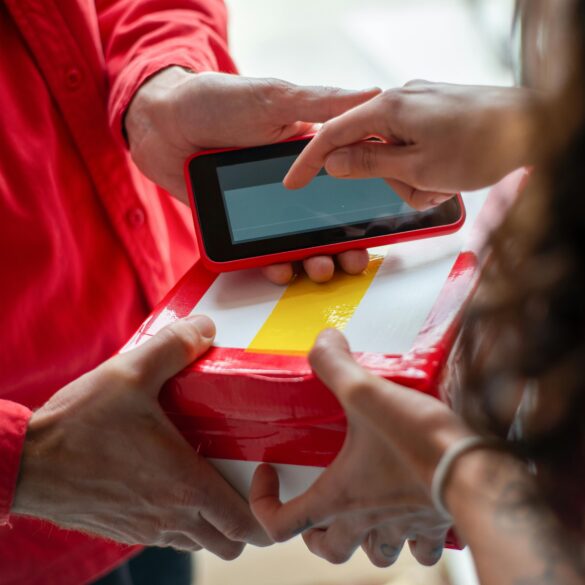How to Secure a Blue Card Work Permit in Czech Republic: Expert Guide
You know, I never imagined that my professional journey would become a crash course in European immigration law. When I was first approached by a multinational client in Prague to help their new hire navigate the infamous “Blue Card” application, I thought, “How hard can it be?” Famous last words. Several bureaucratic hurdles, late-night document translations, and more than a few existential questions later—plus numerous follow-up conversations with Czech officials—I started to see the sheer complexity (and opportunity) this process represents, especially for ambitious, skilled professionals eager to call Central Europe their new home.
This guide isn’t just a dry recitation of the law. What I offer is an authentic, comprehensive dive—a blend of legal insight, lived experience, and hands-on advice—on how to apply for a Blue Card work permit in the Czech Republic as of 2025. From eligibility and documentation all the way through to interview tips and error-avoidance, I’ll be totally candid—sharing missteps, clarifications, and those quirky Czech details you just won’t find in the government’s PDFs. Sound familiar? Anyone who’s dealt with foreign bureaucracy knows: the devil is always in the details.
So, if you’re a professional fixated on advancing your career in Prague, Brno, or Ostrava—from IT engineers to healthcare leaders to research specialists—or an HR director assisting international hires, this is written for you. I promise, what you’ll find here is both practical and deeply personal: everything I wish I’d known before my first client ever asked, “Can you help me get a Blue Card?”
What is the Blue Card and Who Needs It?
Let me get straight to it: The EU Blue Card is Europe’s premium work visa for highly skilled non-EU/EEA/Swiss nationals. Conceptually, it’s closest to the U.S. Green Card, but with more intricate strings attached—think of it as the golden ticket for expats hoping to not just work but eventually build a life in the Czech Republic or any participating EU member state1. It opens doors, but not all doors; there’s a logic—and a fair bit of Czech-specific magic—to who actually qualifies.
So who really needs it? If you’re an engineer from India, a data scientist from Turkey, or a medical researcher from outside the EU, and you’ve just landed a job with a Czech firm offering a competitive salary, the Blue Card is your gateway to long-term residence. For HR teams recruiting globally, the Blue Card process is essential—a missed step could mean lost talent, regulatory risk, or expensive delays.
Eligibility Requirements (As of 2025)
Here’s where it gets interesting—because honestly, the rules have changed more than once. The current requirements, updated in early 2025, look straightforward on paper, but I’ll flag the nuances that have tripped people up repeatedly (myself included, in my first couple of client cases).
| Requirement | Description | Common Mistakes | Czech-Specific Notes |
|---|---|---|---|
| Higher Education Degree | Bachelor’s or higher, recognized by CZ authorities | Unaccredited university, missing apostilles | Degree nostrification required |
| Job Offer | In a skilled shortage occupation, contract ≥ 1 year | Offer not registered in CZ labor office | Must match type of work permit applied |
| Minimum Salary | At least 1.5x the national average gross | Offer just below threshold, variable bonuses | Base pay only, bonuses excluded |
| Valid Health Insurance | Full coverage for Czech Republic | Travel insurance, not full health | Must name applicant and validity period |
Step-by-Step Application Process
I’ve seen skilled newcomers underestimate this section, thinking, “Hey, the HR team will handle everything.” If only. Time and again, the applicants who stay hands-on and proactive secure their Blue Cards with far less drama. If you’re detail-oriented and even slightly persistent, you’ll thrive here. Here’s the process as I break it down for clients—not just theoretically, but with tactical, learned-the-hard-way insight:
- Secure an Eligible Job Offer: Employer must list the open role in the central job vacancy database and declare it eligible for Blue Card applicants. HR teams: triple-check this; otherwise, your candidate is dead in the water.
- Prepare University Degree and Nostrification: Having a degree isn’t enough—it must be officially recognized (nostrified) by Czech authorities. My first Indian client lost three months due to an incomplete apostille. Don’t repeat that mistake.
- Gather Documentation: I still get heartburn thinking about just how picky the Czech Interior Ministry can be—tiny discrepancies in translation or a missing stamp can trigger major delays. We’ll discuss document tips next.
- Book a Consulate Appointment: Most applications start abroad at your nearest Czech embassy. Book early: slots fill up 2-3 months in advance in busy regions. If applying inside Czechia, you’ll need proof of legal residence at the time of your submission.
- Submit Application and Attend Interview: Bring all originals and certified copies. Expect an interview; sometimes it’s “just paperwork,” other times, deep questioning about your work history.
- Wait for Decision: Processing officially takes up to 90 days, but real-life results vary. That leads us to a major piece of advice on patience and proactive follow-up.
Want answers to “What does a Blue Card interview involve?” or “How can I speed up approval?” Stick with me—we’ll get there. Meanwhile, here’s what trips up most applicants:
Key Documents and Translation Pitfalls
Honestly, I thought having a stack of neatly printed forms was enough. Until I watched an entire application be rejected because a notary stamp was in blue ink instead of black. That’s the level of precision you’re up against. Here’s the real checklist:
- Valid Passport – Must cover at least 3 months beyond intended stay.
- Signed Job Contract – Clearly stating title, duties, salary, duration, and location.
- Degree Diploma (and official translation) – Accredited, accompanied by apostille for non-EU countries.
- Nostrification Certificate – Proof your diploma is recognized by Czech authorities.
- Proof of Accommodation – Rental contract or owner’s statement (stamped, signed—no exceptions!).
- Health Insurance Certificate – Policy covering the Czech Republic for full period.
- Photographs – Czech ID-compliant; don’t use passport photo booths from other countries unless you enjoy repeat visits.
- Police Clearance (sometimes requested) – Particularly for non-EU countries with higher risk profiles.
What still gets me? Translation requirements. Official Czech translations must be done by certified translators—an online translation won’t cut it. Applicants from South America often hit snags when documents aren’t “superlegalized”—that is, extra authentication steps beyond the apostille. Always verify what’s needed for your specific nationality2.
Official Timeframes and Untold Delays
Here’s where expectations break down. The Interior Ministry states a 90-day standard for processing, but in my practical experience, 3–5 months is not unusual. The pandemic backlog still echoes, plus holidays shut down ministry offices through August and Christmas. One client applying in October didn’t get approval until February—nobody warned them about annual holiday lulls.
If your paperwork is 100% in order (rarely the case first time out), you may get lucky. Yet, real-world delays often come from:
- Unresponsive consulates (be ready to follow up consistently)
- Missing employer or landlord confirmation calls
- Ambiguous job descriptions not matching the “shortage occupation” list
- Unanticipated requests for additional documentation
My honest advice? Track every step, set calendar reminders, and keep your mobile phone line open for callback checks—and get comfortable with repeat emails. The squeaky wheel really does get the oil here.
Interviews, Appointments, and the “Czech Factor”
This part still gives me a little anxiety. I’ve had applicants call me, panicked, after an interview that was less about qualifications and more about highly specific documents or slightly combative questioning. Czech bureaucracy can feel cold or even intimidating—but don’t take it personally. Many officials are just following procedure to the letter, sometimes with less-than-perfect English.
What I’ve learned: Show respect, bring copies, and don’t argue—just calmly offer backup documentation. And, of course, be ready for even the friendliest official to say, “We need more documents” (even if they didn’t say so in the checklist).

Unexpected Roadblocks and How to Handle Them
Frankly, anyone promising that their Blue Card application will be “stress-free” is selling you something. From my experience, even rockstar candidates—amazing résumés, top employers—hit surprises. Here are recent pitfalls I’ve helped clients untangle:
- Degree Recognition Delays: Nostrification can take longer than anticipated. One university in Brno had a three-month backlog—the applicant didn’t anticipate this and almost lost the job offer. Start this alongside your job search.
- Unregistered Job Offers: Job position not properly listed in the labor database? Application rejected outright. Simple administrative mistakes by HR can torpedo the process—always confirm status before applying.
- Accommodation Gaps: Landlords refusing to sign official confirmation letters, or offering short-term contracts, signal warning flags to Czech authorities. Negotiate accommodation terms with paperwork in mind.
- Ambiguous Job Roles: If work descriptions don’t fit the “shortage occupation” list, the application may linger in limbo. Some clever HR departments now rewrite job descriptions specifically for Blue Card alignment.
If you’re stuck, remember: The Czech system (like many EU bureaucracies) respects persistence and polite follow-up. Delays are rarely personal—they’re just process. Keep your calm and always be ready to resend, clarify, or escalate. I can’t count the number of approvals finally granted only after the “third polite reminder.”
Renewals, Family Reunification, and Long-Term Strategy
You got your Blue Card—now what? Some would close the chapter here, but, honestly, this is where the longer-term decisions matter most. Renewal looks easy—“just re-submit”—but even minor changes (employer switch, moving flats, salary bump) require reauthorization. I’ve counseled clients who almost lost their legal status during transitions; the trick is to notify authorities before—not after—the change.
Family reunification remains a key attraction of the Blue Card—your spouse and children can join you, often with streamlined paperwork. But “streamlined” is relative: if your marital documents aren’t perfectly translated and apostilled, delays are inevitable. From my vantage point, clients with proactive legal support (translation services, immigration specialists) fare better every time.
| Scenario | Action Required | Risks | My Advice |
|---|---|---|---|
| Switching Employers | Notify Ministry, submit new contract | Potential lapse, illegal status | Never switch before approval; always hold old permit until new is issued. |
| Moving to Another EU State | Apply for Blue Card transfer | Gaps, new eligibility criteria | Seek legal advice in destination country first! |
| Bringing Family | File for reunification concurrently | Document mismatch, translation delays | Begin the process ASAP; pre-validate all paperwork. |
Your FAQ: Answers to “People Also Ask”
How long does it take to get a Blue Card in Czech Republic?
Officially: up to 90 days. Realistically? Four to six months depending on paperwork, employer compliance, and time of year4. Don’t book flights until you have the approval in hand.
Can I bring my spouse and children?
Yes. File for family reunification alongside, or shortly after, your Blue Card application. All family civil documents need certified translation and legali-zation. This is often the step that leads to the most re-submissions, so triple-check your paperwork.
Can I change employers or jobs?
Yes, but only after you’ve held your Blue Card for at least two years in most cases. Even so, you need to notify authorities and await permission before starting the new job. Failure here can invalidate your legal status—I’ve seen it happen.
What if I want permanent residency?
After five years of continuous legal residence in EU Blue Card status (with at least two years in the Czech Republic), you can apply for long-term or permanent residence—a pathway few realize is open to them. Get started early; collect documentation from day one.
Expert Insights, Pitfalls, and Best Practices
Now, reflecting on the dozens of Blue Card applications I’ve been involved in, what strikes me most is how often success comes down to personal initiative, cultural awareness, and—yes—a bit of patience with the Czech “style” of bureaucracy. Here are my most hard-won lessons. I hope you’ll learn from them before you embark on this path:
- Proactivity Beats Reactivity: Don’t wait for officials to reach out. Always confirm receipt of your documents, and chase up politely after any silent period longer than three weeks.
- Localization Matters: Use a local Czech address for correspondence if you can. Applications processed locally (when eligible) see fewer translation issues and are often handled faster.
- Czech Connections Help: If you have a Czech-speaking colleague or friend, ask them to review your application package. One client got an approval because their accompanying letter, written by a local friend, bypassed a potential misunderstanding around job description translation.
- Plan Around Holidays: Interior Ministry offices and consulates slow down hugely in summer and December-January. Plan appointments and submissions accordingly; missing these windows can mean waiting an extra 1-2 months for even basic progress.
- Don’t Neglect Health Insurance: Make sure your insurance policy is recognized and accepted by Czech authorities—many popular expat policies are not.
References
Conclusion: Final Thoughts and Next Steps
If you’ve read this far, you’re probably either embarking on your Czech Blue Card journey or guiding someone else through it. My advice? Keep this guide handy, check for updates regularly, and lean on the real-world wisdom of fellow expats, employers, and trusted officials. I’m still learning—regulations evolve, the process gets tweaked, and no two applications unfold the same way. What matters is staying curious, proactive, and patient with the process.
Securing a Blue Card is more marathon than sprint—success isn’t just about deadlines and paperwork, but about flexibility, cultural awareness, and occasionally laughing off the Czech quirks that come your way. It’s a journey worth taking, and with the right preparation, it’s absolutely achievable. Wishing you smooth paperwork and a soft landing in Czechia!



